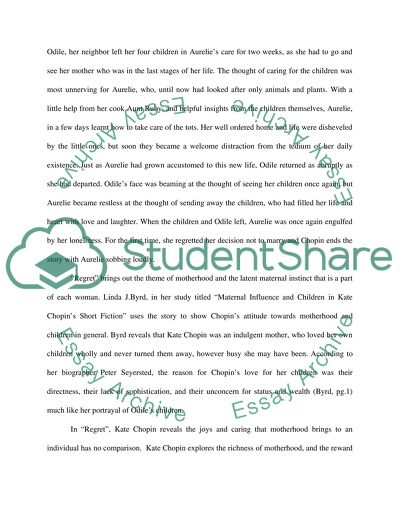Cite this document
(“Analysis of Regret by Kate Chopin Essay Example | Topics and Well Written Essays - 1250 words”, n.d.)
Retrieved from https://studentshare.org/literature/1551235-regret-by-kate-chopin
Retrieved from https://studentshare.org/literature/1551235-regret-by-kate-chopin
(Analysis of Regret by Kate Chopin Essay Example | Topics and Well Written Essays - 1250 Words)
https://studentshare.org/literature/1551235-regret-by-kate-chopin.
https://studentshare.org/literature/1551235-regret-by-kate-chopin.
“Analysis of Regret by Kate Chopin Essay Example | Topics and Well Written Essays - 1250 Words”, n.d. https://studentshare.org/literature/1551235-regret-by-kate-chopin.


